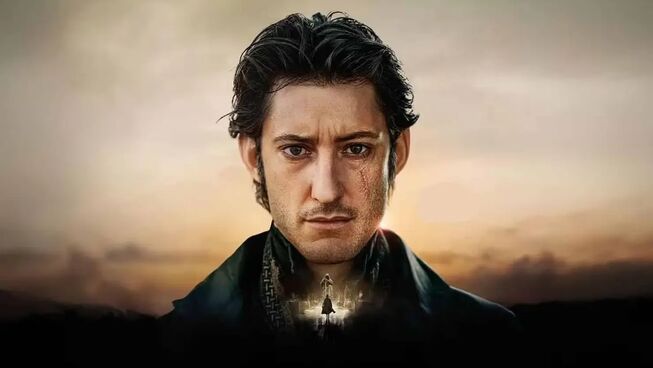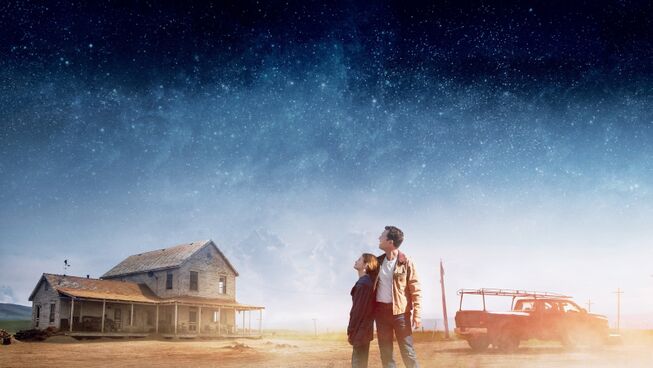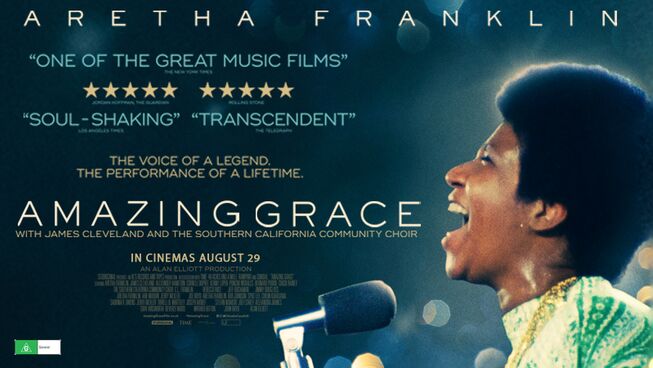The Rivals of Amziah King
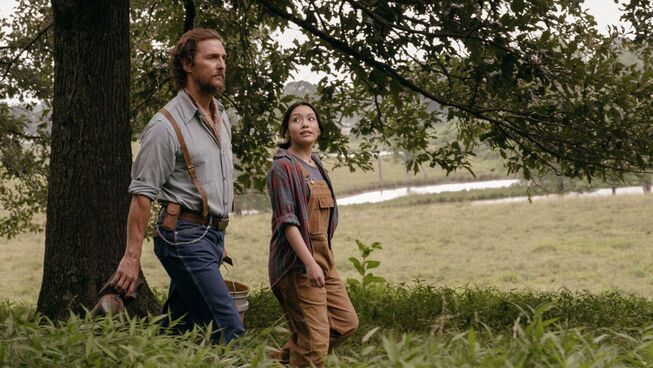
⭐️ ⭐️ ⭐️ ⭐️ ⭐️ (out of 5)
A blistering bee-keeping bluegrass beauty! In the midst of the 2020 COVID-19 lockdown, a small, independent sci-fi film titled The Vast of Night was released quietly on Amazon Prime Video. It subtly introduced a new filmmaker, Andrew Patterson, onto the scene. For those who stumbled across the film, he immediately became a rising talent to watch. His latest film premiered at the SXSW festival earlier this year, followed by its international debut at the Melbourne International Film Festival. And this beekeeping blast of energy is going to continue to build louder and louder, the more people see it.
The film opens on Amziah King (Matthew McConaughey), the unofficial mayor of his rural Oklahoma community. Southern charm personified, he works as an apiarist (beekeeper) but spends his spare time jamming out bluegrass tunes with his ragtag group of buddies and hosting potluck lunches. When his former foster daughter, Kateri (Angelina LookingGlass), suddenly reappears in his life, Amziah seizes the opportunity to reconnect; however, his plans to teach her his trade hit a roadblock when his beekeeping rivals put the family business at risk.
On paper, The Rivals of Amziah King shouldn’t work as well as it does. A beekeeping drama? A revenge-fuelled heist? With bluegrass musical moments scattered throughout? Yet in Patterson’s hands, these disparate threads come together in an intoxicating whole. What emerges is part Americana folktale, part operatic morality play, and part barnstorming thriller (or should that be hivestorming!). The result is a sprawling cinematic epic that absolutely enraptures. Tonally, the film strikes a remarkable balance. At times, it is joyously humorous, eliciting laughs with a kind of folksy, lived-in wit, and some darkly violent yet comedic moments that immediately establish the film's confident presence. But beneath the laughter lies a current of grief. Director Andrew Patterson doesn't shy away from sorrow; instead, he embraces it, weaving it into the story's very DNA. The result is a tapestry of emotion—revenge and reward, pain and healing, loss and renewal—played out against the backdrop of a carefree but tight-knit community that is not immune to exploitation from corrupt capitalists eager to squeeze every dollar out of their varied investments.
Matthew McConaughey, as Amziah King, inhabits the character with effortless ease. There’s such a warmth to his performance, as though he were born to play this role. McConaughey has long thrived in characters who straddle the line between charisma and complexity, and here he brings both qualities to full bloom. Amziah King is both larger-than-life and profoundly human: a man tethered to the values of family, land, and honour, but with an obvious cheek. Watching McConaughey inhabit the role is to watch an actor fully in his element.
And yet—astonishingly—it is not McConaughey who dominates the screen. That honour belongs to Angelina LookingGlass. In a revelatory performance, she electrifies every scene she enters, commanding attention with confidence, vulnerability, and sheer magnetic presence. Her character’s driven determination to accomplish the tasks before her infuses the film with urgency and soul. The supporting cast further enriches the narrative, offering glimpses of life in a Southern community seldom represented on screen. There’s a lived-in authenticity here and Patterson’s attention to cultural detail is meticulous, yet never patronising. He presents the South not as a caricature, but as a vibrant, complex world of contradictions—joy and pain, generosity and greed, resilience and vulnerability.
The film’s heartbeat, however, is its music. The bluegrass-infused score is nothing short of transcendent. Fiddles, banjos, and harmonies rise and fall like the tides, carrying the audience through crescendos of joy and valleys of lament. At times, the music feels almost liturgical—songs of grief and hope woven into the fabric of the story. The soundtrack is not merely accompaniment; it is a narrative force in itself, underscoring the themes of community, legacy, and renewal.
Finally, what is most remarkable about The Rivals of Amziah King is its ability to fuse the mythic with the everyday. Patterson crafts sequences of sheer cinematic spectacle—grand heist set pieces, gorgeously shot rural landscapes, and pulse-pounding confrontations—yet grounds them in intimate emotional realities. The big moments dazzle, but the small ones linger. It's a film that manages to be both epic and personal, sweeping and tender.
Check out The One Thing podcast - How can movies open the door to meaningful conversations about faith?
Reel Dialogue’s Russ Matthews joins us to share how films can help spark gospel conversations in everyday life. We discuss why asking good questions and listening well are essential, how couples can partner in mission together, and what Russ has learned from using mainstream movies as a starting point for sharing Jesus.
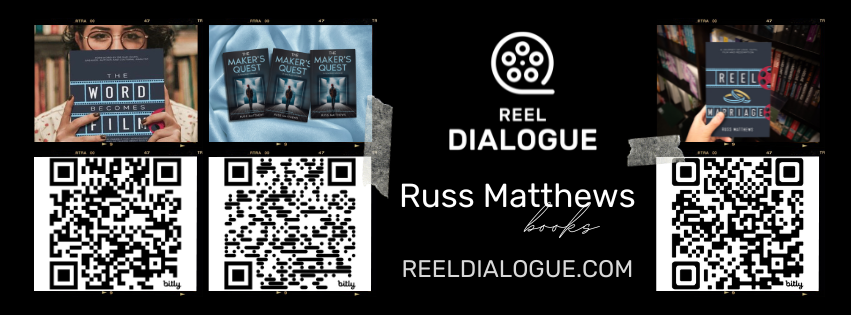
Reel Dialogue: What does true justice look like?
In The Rivals of Amziah King, the titular rival's actions cause a cascading series of retributive acts that ultimately show that payback can only go so far. Revenge can only accomplish so much, but true healing and hope emerge when generosity supplants greed, and community prevails over isolation. It's a needed reminder that true justice isn't about retribution, but about restoration.
This is one of the very core ideas that sits at the heart of the Gospel. God is a just God. He is well within His rights to judge our sins and hold them against us. But His mercy on the Cross means that Jesus takes our place. He faces the retributive justice we deserve for our sins. And as a result of His loving sacrifice, we are restored to a healed and hope-filled relationship with God.


